How a Former Marine Built UT’s National Championship Weightlifting Team
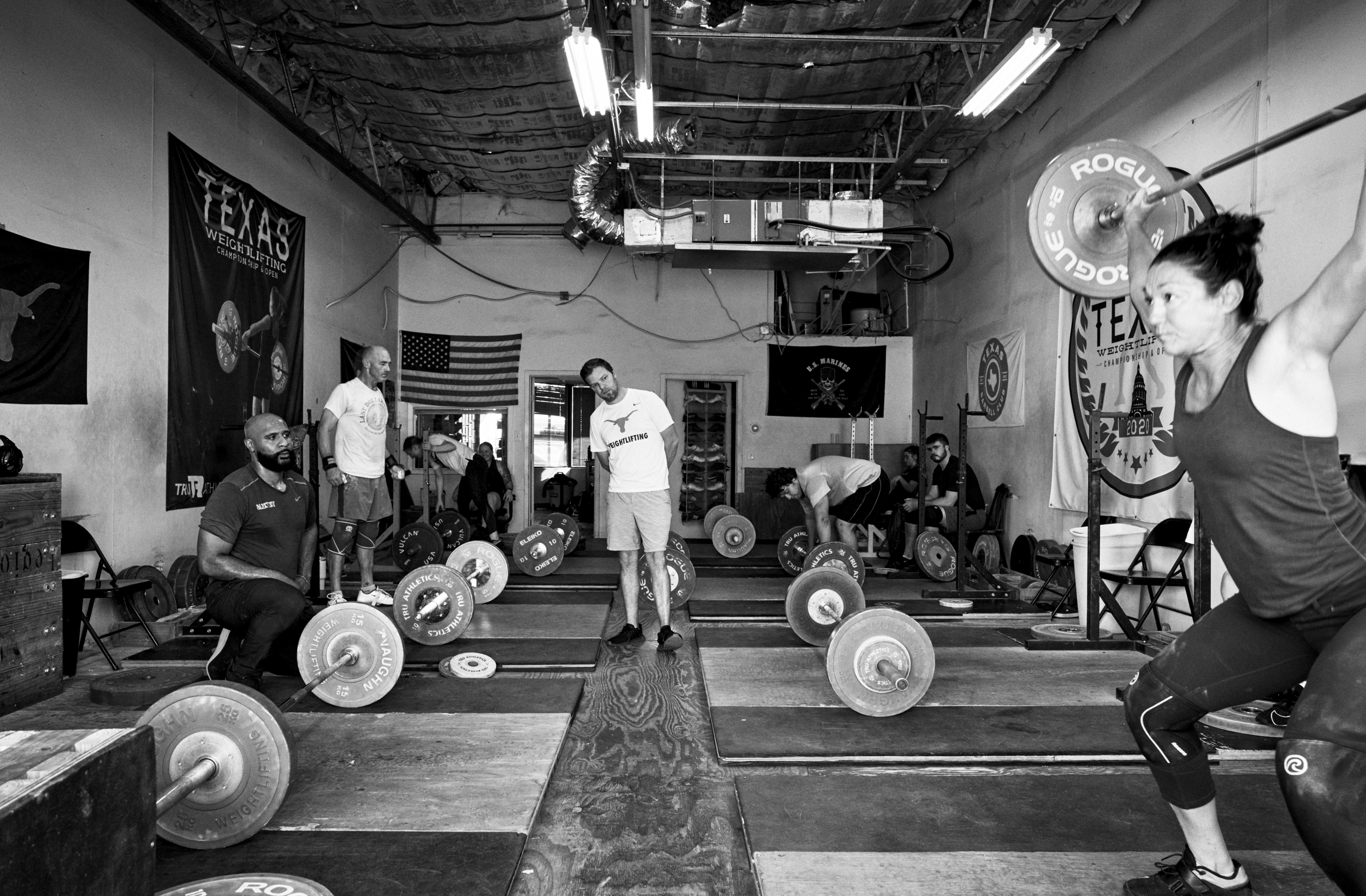
David Griffin, BS ’20, once brought an empty glass jar to a white elephant gift exchange. He stuck a piece of white tape on the jar, drew himself as a stick figure holding a barbell, and christened it as “Dave’s Talent Jar.” He said plenty about how he perceived his physical prowess without giving anything else away.
Despite his propensity for self-deprecation, Griffin has created a unique community on and off campus, fostering champions and scholars from many slices of UT life. The seven-time Under-25 National Champions University of Texas Weightlifting Team is a first-of-its-kind college program, outperforming scholarship-offering competitor schools under the guidance of Griffin, its singular founder.
“I didn’t believe I was capable of going to college,” Griffin says as he scuttles across the converted shop-turned-gym in East Austin. He admits he barely graduated high school, earning a 1.3 GPA his senior year, and he struggled to come of age with his father in prison and mother working multiple jobs.
After a short post-high school work stint, Griffin shipped off as a Marine and eventually served two tours in the kinetic Helmand Province of Afghanistan, beginning in 2010. Toward the end of Griffin’s service, he came across some fellow Marines attempting one of the two movements of weightlifting—the clean and jerk—and it sparked an interest that would soon become his new mission.
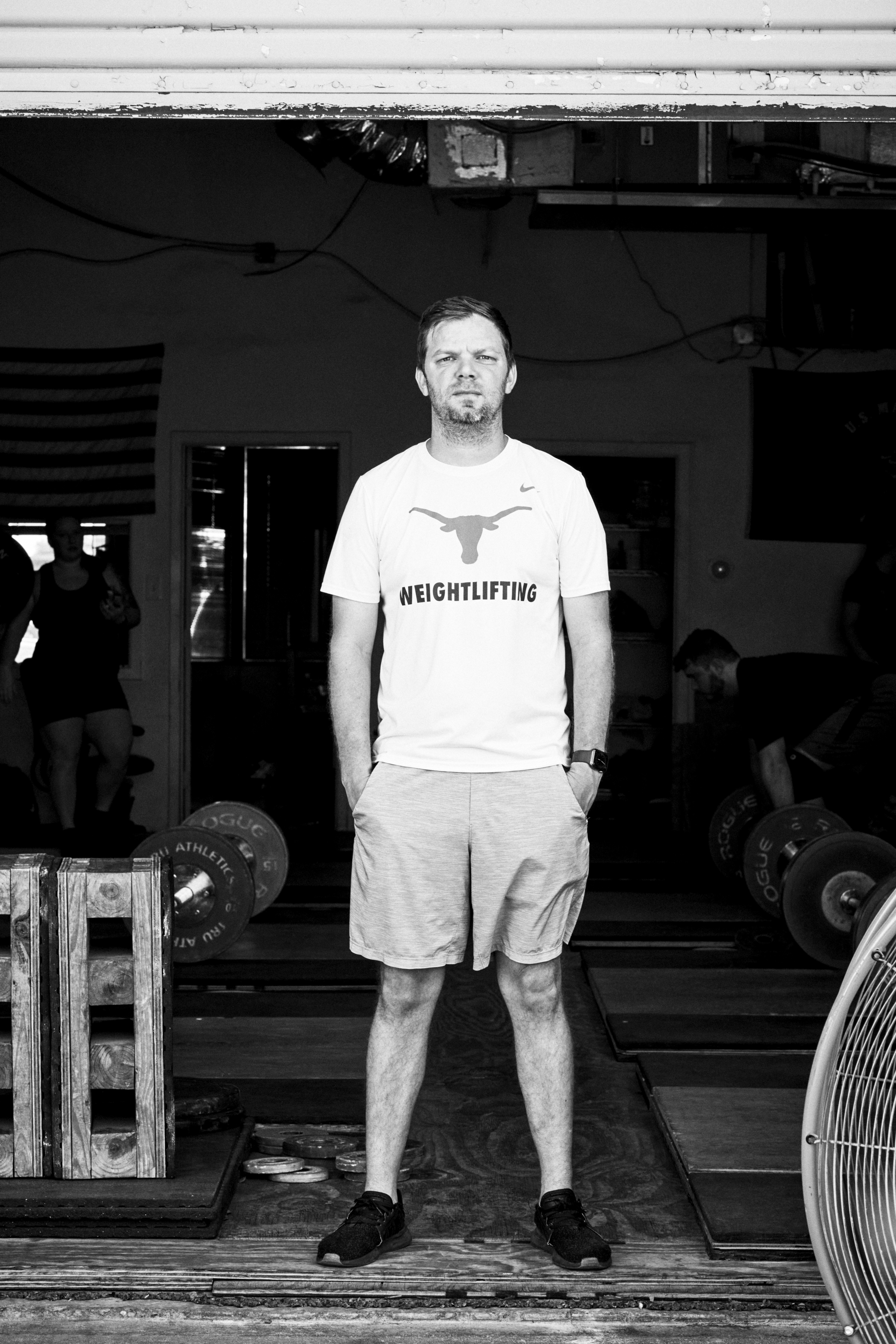
Griffin says he certainly hadn’t intended to pursue coaching, but he felt a “big void” in his life from an adolescence with an absent father and knew it left in him an “intrinsic need for mentorship.” During his time in the Marines, Griffin had noticed the respect he received when leading physical training sessions. But by the time he enrolled at UT in the spring of 2015, Griffin wasn’t sure whether he wanted to pursue engineering or physiology.
One relationship proved formative in his first semester. Griffin began competitive weightlifting under coach Ursula Papandrea, an Austin Community College professor and two-time national champion. By December 2015, Griffin had begun coaching his first trainee, and they arrived at the American Open Finals. There, Griffin discovered Hassle Free Barbell, a California-based club that led a weightlifting program for high school students.
They had built “an incredible troop,” as Griffin puts it, and he realized he could pull from the more than 40,000 undergrads to build something like it at UT. He began filling out the paperwork to start the team on the plane ride home, and by January 2016, the very need Griffin had once recognized in himself had manifested in the opportunity to mentor others across the Forty Acres.
“In the Marines, there is no clock on the wall,” Griffin says. “You do things until the job is done.” If an athlete sticks around long enough, they’ll witness Griffin’s 70-plus-hour work weeks. These are long-running, even before he launched the UT team and walked the University’s basements to try to find a home for his vision. Unable to secure real estate at UT, Griffin began coaching his student-athletes at Hyde Park Gym before finally founding his own gym, Texas Barbell Club, in 2018.
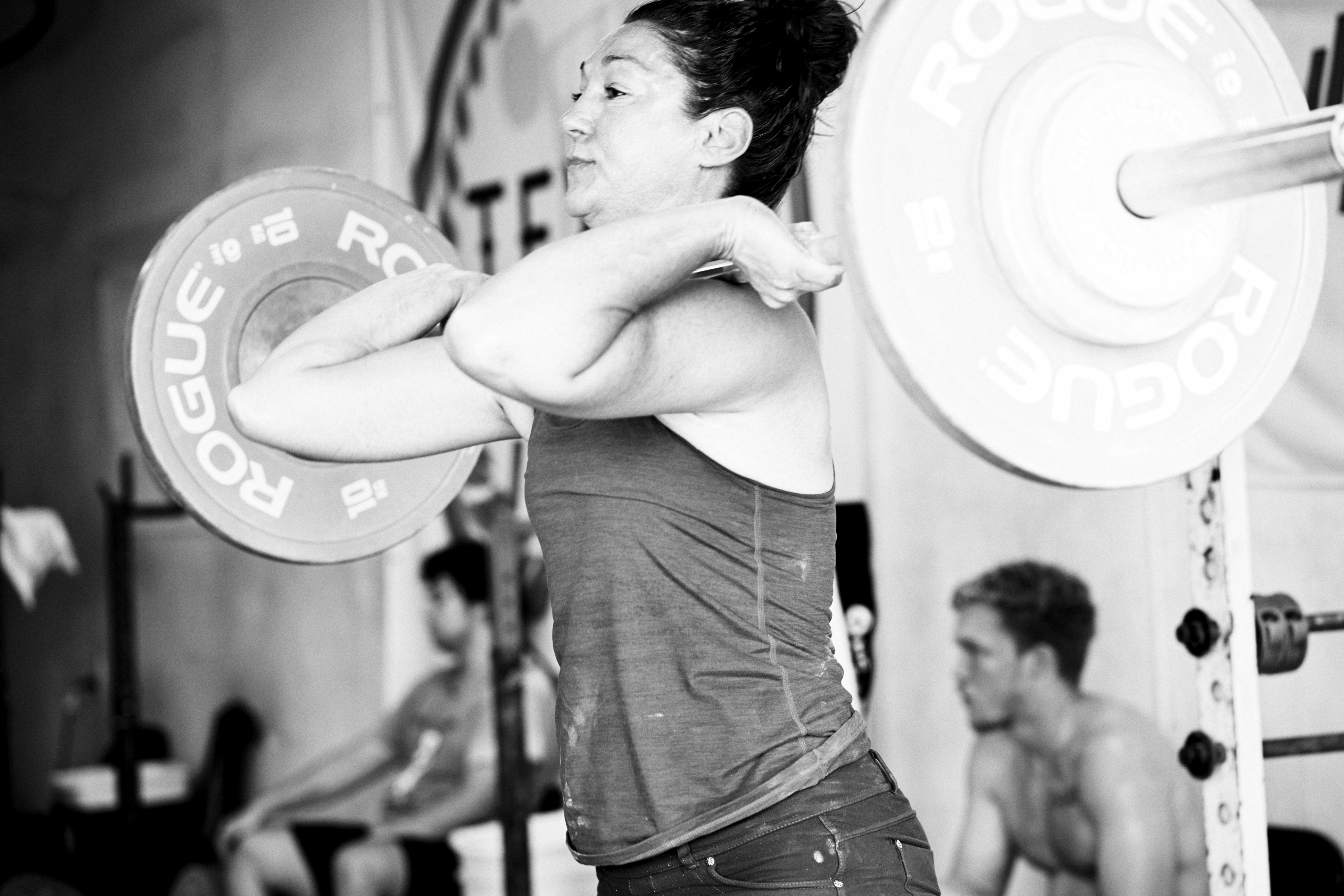
The talent jar was regifted by its white elephant recipient to mark the opening of Texas Barbell Club. No longer empty, it had been filled with cheap whiskey and inscribed with a few words that also describe its proprietor—“fiery, often hard to swallow, but highly effective.” The evidence has poured in for the latter judgment: 10 national team trophies, more than 50 national medals, $150,000 raised, and at least 75 athletes participating in the program since its inception.
As a coach, Griffin’s focus has shifted from finding “good athletes” to “good people,” though the club’s successes persisted. In 2021, Blake Gamez, ’22, became the team’s first national champion. And in 2022, Brie Gomez, BS ’22, became the first international competitor, taking home a bronze medal at the FISU America Games, representing the U.S. in Mérida, Mexico.
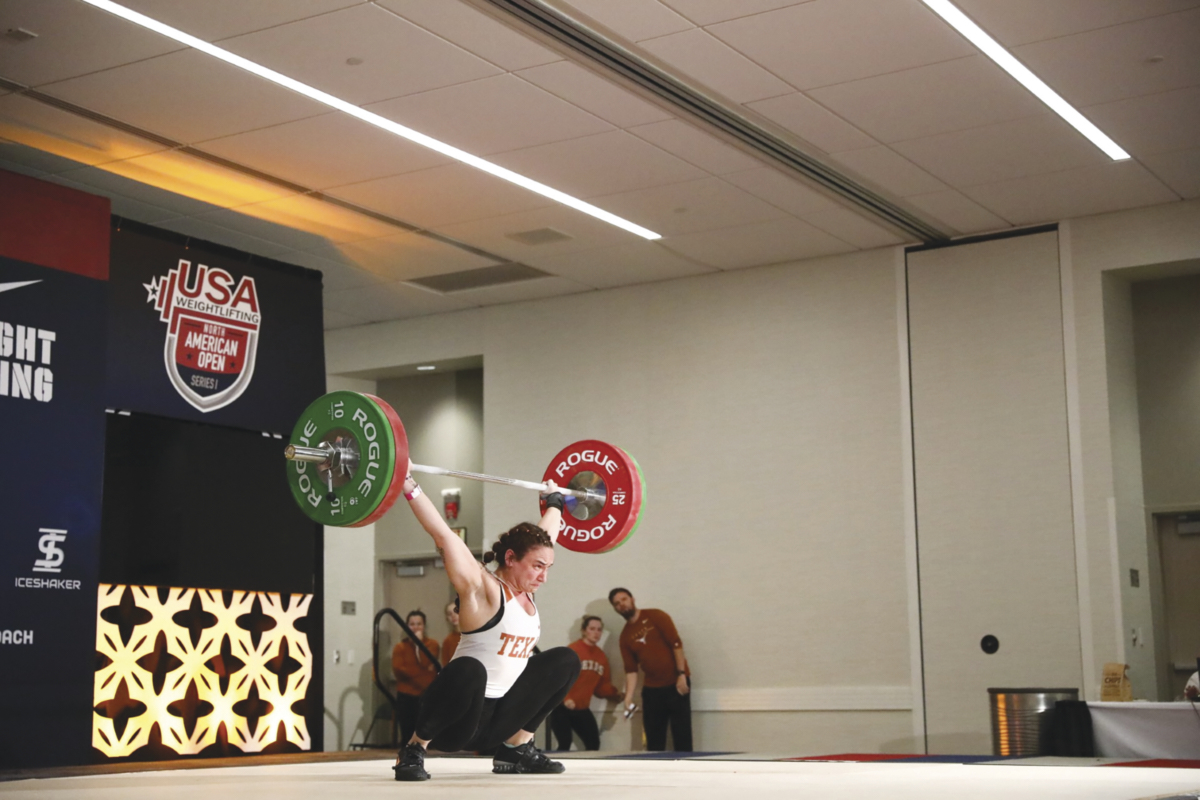
Despite these accomplishments, Griffin is quick to attribute success back to his athletes. He employs an often-unorthodox coaching paradigm: “To effectively bring people along … you have to meet them where they are.” He observed its alternative, which he calls “blanket leadership,” while in the Marine Corps and saw it as both “lazy and ineffective.”
Griffin’s approach reflects his younger struggles. “The biggest goal has always been to not make the team cost prohibitive,” he says. Some of the national team members don’t have cars to make the 20-minute drive from campus to the gym. Any failure by the teammates to organize rides or accommodations is “probably the one time the military side comes out,” according to Griffin. On occasion, whenever transportation plans fall through, some athletes have combined biking, bus rides, and even running from areas around campus and across Interstate 35 to ensure they get their reps in.
The athletes’ efforts have been matched with hard-fought resources provided by the team. High-level competitors train for up to eight 2-hour sessions a week, each only paying $200 a semester in dues. Many members work while attending school and competing in weightlifting, but no one pays out of pocket for competition—despite more than $30,000 in costs for the national team’s travels this year alone.
These expenses are subsidized through fundraising, largely in the biannual Forty Hours for the 40 Acres drive. As a club sport, the team has relied almost exclusively on the nearly $150,000 raised over the past six years. This fundraising has given many athletes their first opportunity to travel outside of Texas and represent their state. For Griffin, the team exists in part to strengthen “college-aged malleable minds,” and travel serves that core objective.
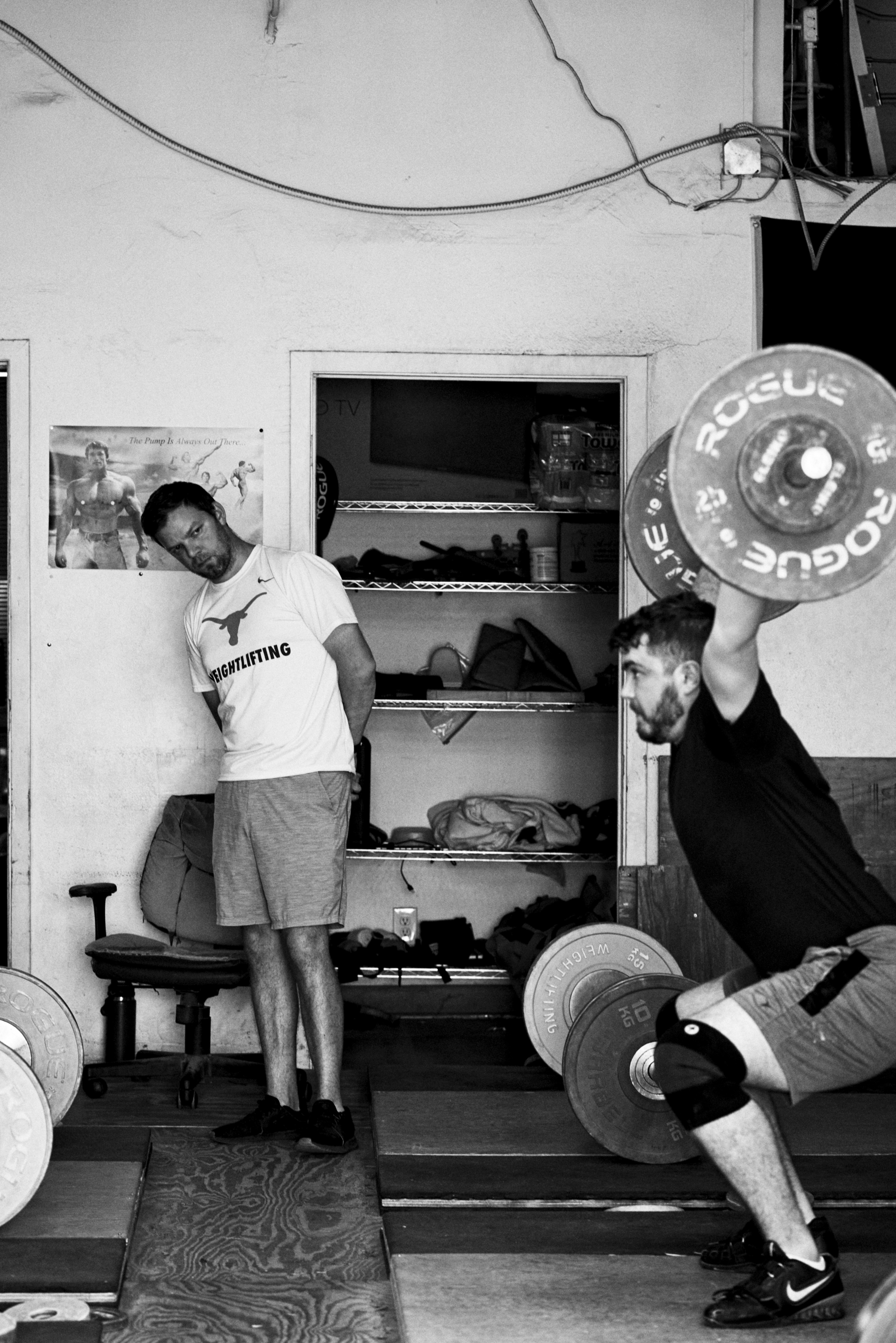
In 2020, however, COVID-19’s sweep through the nation left the team in dire straits. Debt accumulated and gym growth stagnated as training facilities became contagion risks and students left Austin. Equipment prices skyrocketed as shut-in lifters scrambled to continue their training.
Griffin adapted quickly, switching to personalized, remote training programs and divvying up what equipment he could. Some members borrowed a couple of dumbbells; others, a barbell or a few plates. In the meantime, Griffin set up online meets to stoke progress, and 2021 and 2022 Under-25 national champion Cari Griffin joined the coaching staff. (Cari and Dave married in 2022.) Team leadership also amped up their social media efforts to sustain recruitment potential. And in 2021 and 2022, the consistency paid off, when both the men’s and women’s teams won the Under-25 National Championships.
The national team has swelled to 14 members, but finances remain tight. Every Forty for 40 is essential to covering the team’s operating expenses, but Griffin aims to establish an endowment to ensure opportunities exist for coming classes.
“I’m not coaching weightlifting if I don’t have The University of Texas team,” he says. His personal philosophy underpins his commitment to coaching. “[People have] immense strength within themselves, far in excess of what they give themselves credit for,” he says. “With enough drive, discipline, and endurance, they’ll realize incredible results.”
This year, someone broke into the gym. Not a single thing was taken—except for Dave’s Talent Jar. One of his athletes replaced it, filling it with yet another cheap whiskey. Griffin has kept it out of view, right near the coffee. It’s otherwise safe and sound.
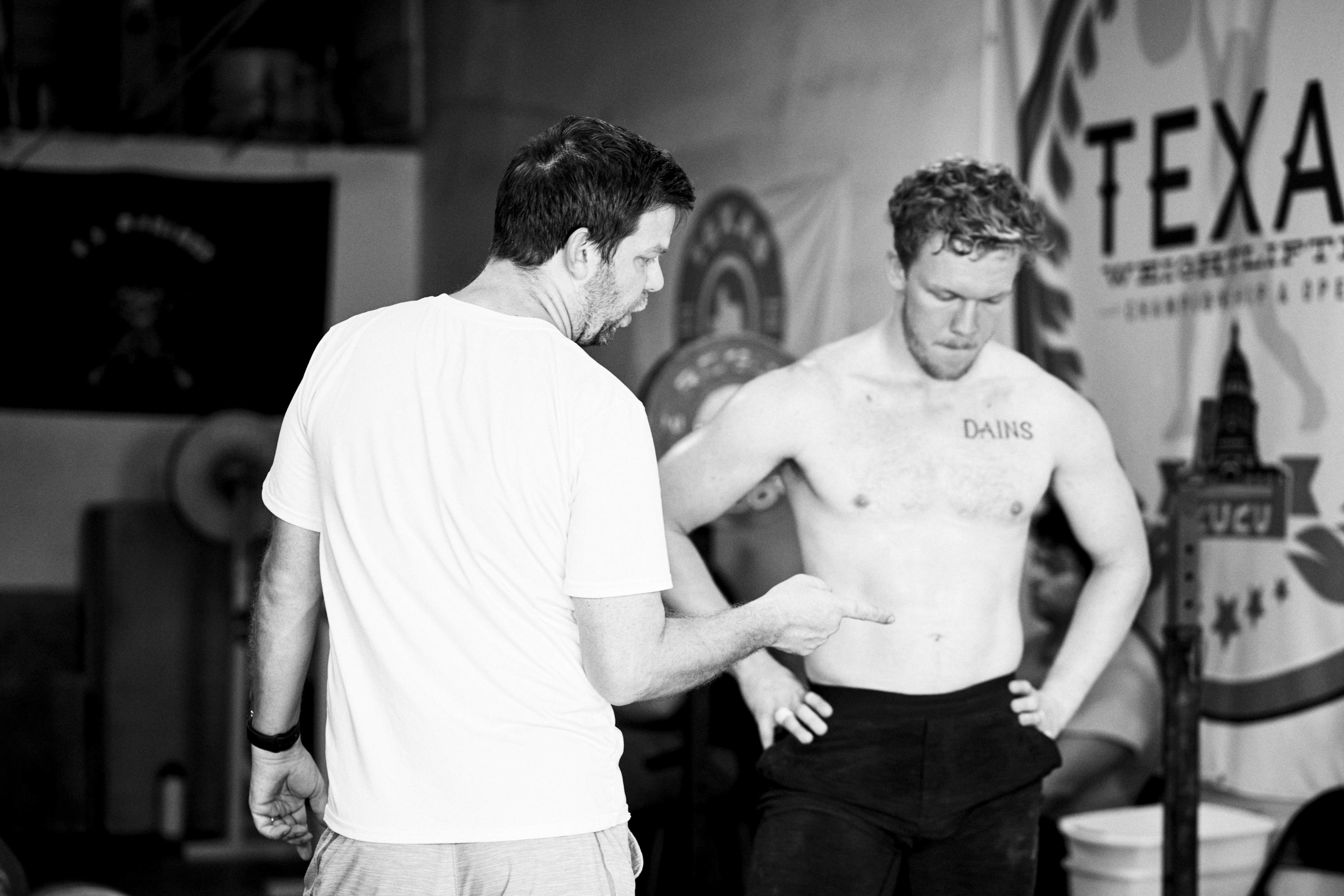
CREDITS: Matt Wright-Steel (5); Jackie Kellett/Lifting Life





